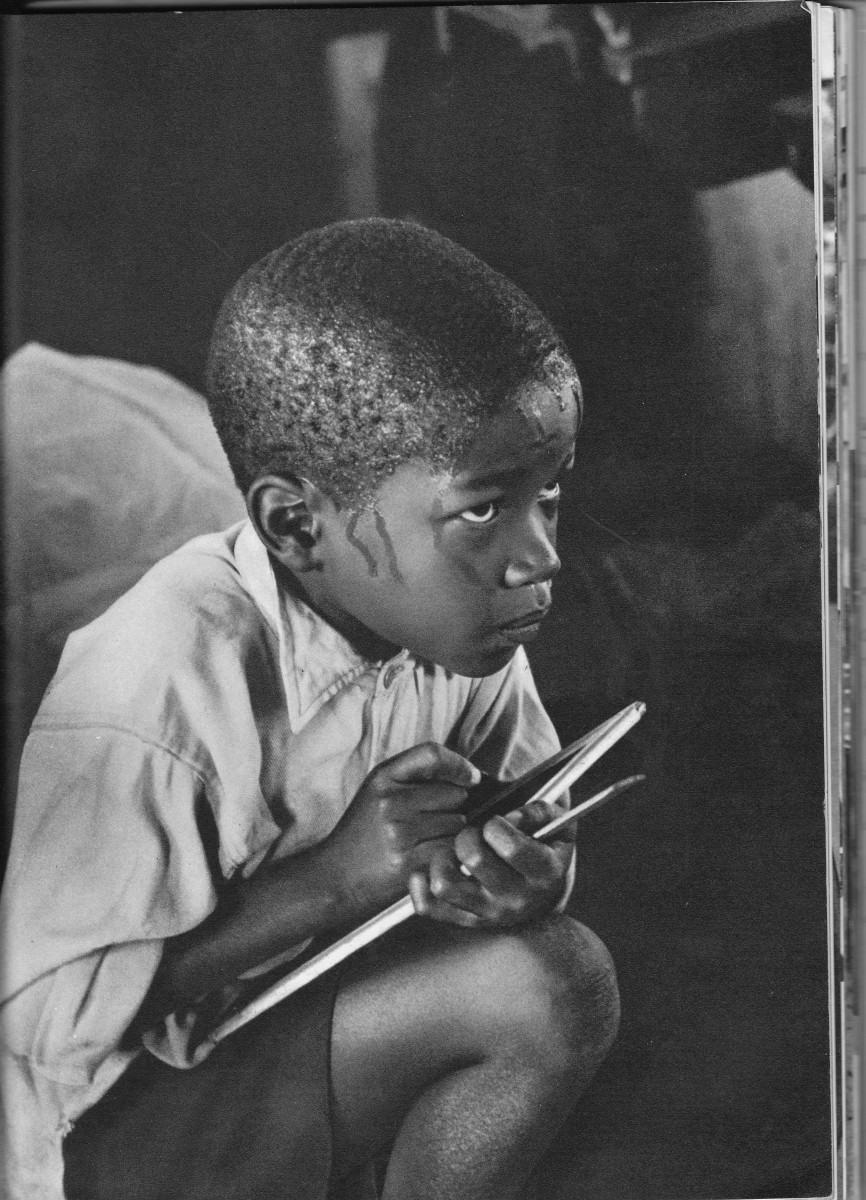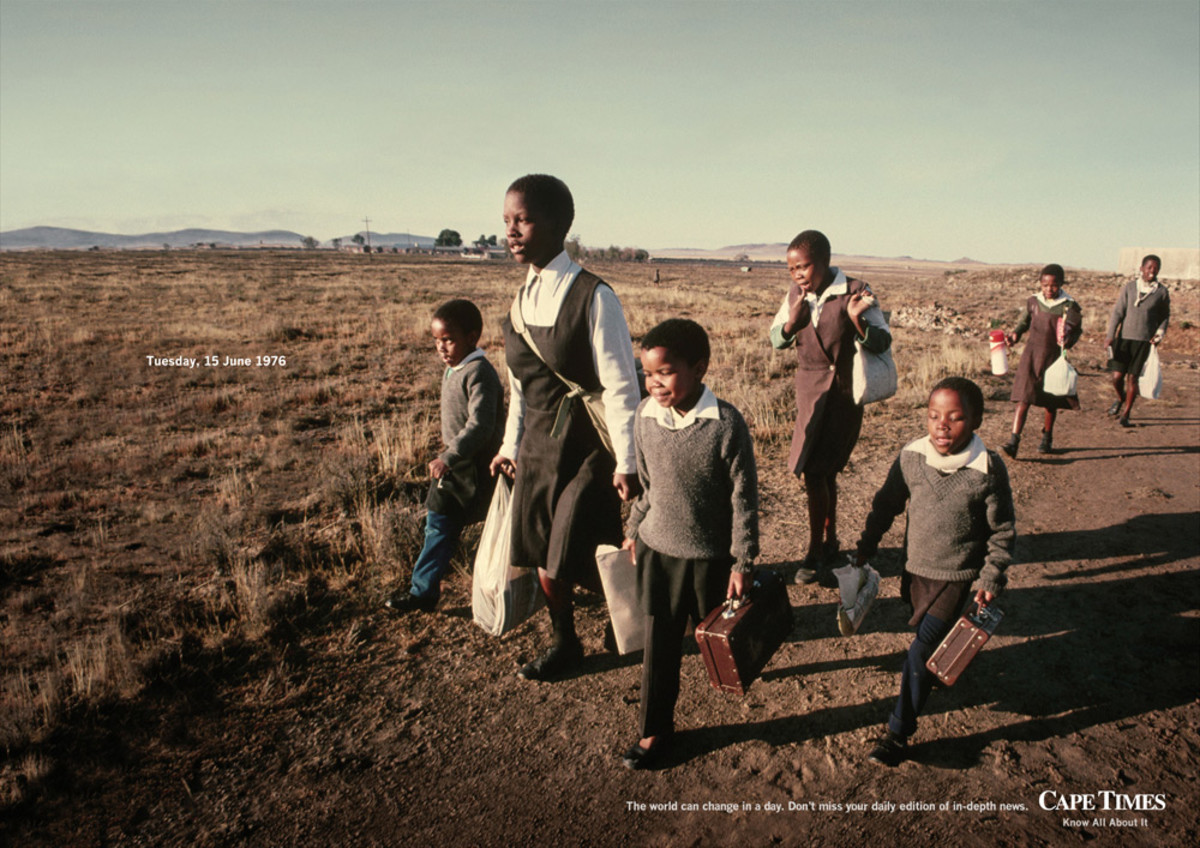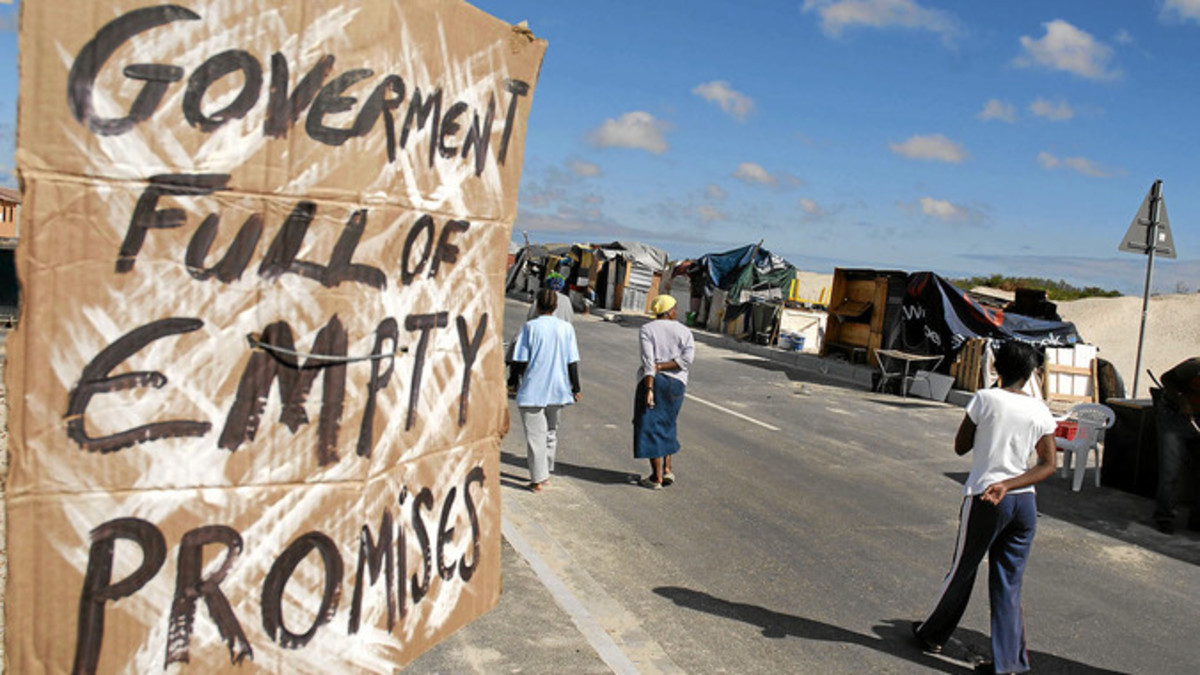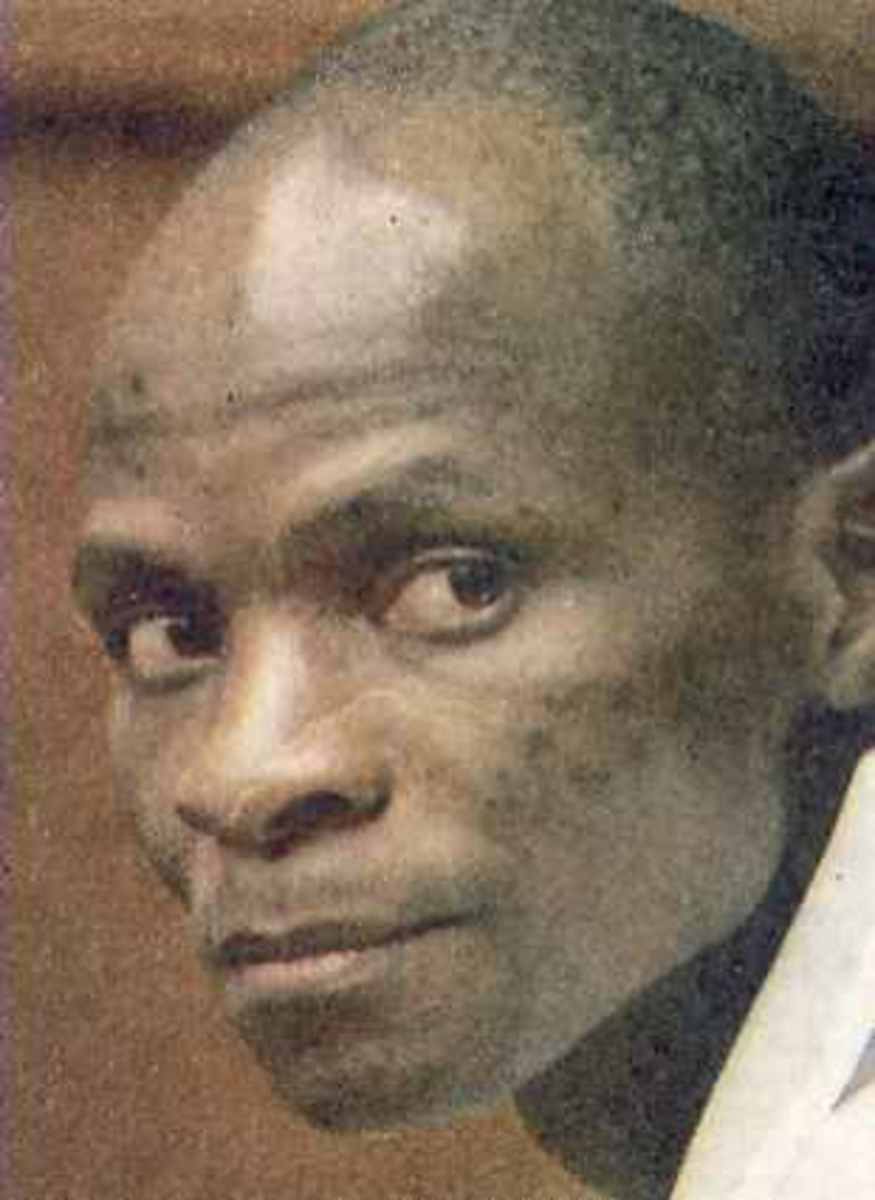Education – a crisis of delivery not curriculum
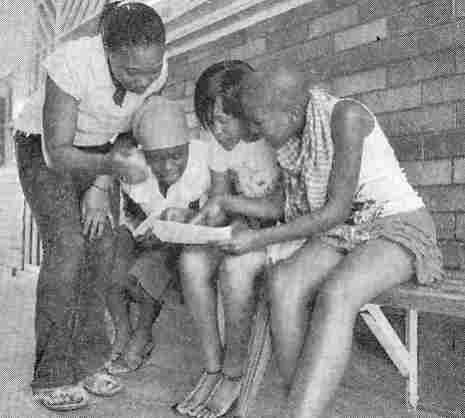
History and policy of education not conducive to good performance
Towards the end of every year in South Africa hundreds of thousands of young people at school go into “examination mode.” The school leaving examination here is called matriculation and is always a time of great tension as the “Matric Certificate” issued to those who pass the examinations play a big role in determining entrance to higher education and the job market, which is in any case smaller than the number of students who write the matric exam.
Matric time is so fraught that there is usually a number of suicides among the students approaching it.
When the matric results were made public at the end of December 2008 there was a great deal of concern as the pass rate had dropped, a trend which has been apparent for the past few years.
The current crop of matrics was also closely scrutinized as they were the first to have come through the whole school system under the recently-introduced Outcomes Based Education (OBE) curriculum. This has led to many commentators roundly condemning the Government for having “irresponsibly experimented” with these students.
However, I think this is to miss the real issues in South African education and its effects on the country’s relatively new democracy, and to ignore the causes buried deep in the history of education in South Africa.
The recent matric results are cause for concern – deep concern and worry, but not, as some have suggested, about the Outcomes Based Education (OBE) curriculum.
It is false to blame the OBE curriculum for the crisis because I don’t believe that it has been given a fair chance, chiefly because the Department has not given it that chance.
South African education is still in the shadow of the pernicious and evil systems of education set up by the Nationalist Party government over 40 years which led to there being many different Departments of Education, each with its own Public Service and curriculum.
In particular the Department of Bantu Education was designed to give Blacks an inferior education, an education aimed at keeping them in perpetual servitude. In the words of Verwoerd, the Black man had, until 1954, “been subjected to a school system which drew him away from his own community and mislead him by showing him the green pastures of European society in which he was not allowed to graze.”
But it should not be thought that the negative aspects of Black education in South Africa started with Verwoerd. Unequal education was the rule throughout South Africa since the late 1800s. Overcoming the legacy of these nearly 200 years will not happen overnight.
Perhaps the decision of the ANC-led government to introduce OBE before laying the groundwork adequately can be criticized. OBE is a new approach to education which replaces the traditional teacher-centred, subject-based curriculum with a method which essentially looks at learning more than teaching. So the whole way a teacher relates to his/her class of learners is fundamentally different from the traditional teaching environment. Expecting under-trained, under-resourced teachers to deal with this is actually iniquitous, especially in light of the history of education in this country.
While the building of classrooms is great, I don’t believe that is the root of the issue. The issue is that schools in rich, predominantly white areas, are able, by and large, to cope. The teachers there are better rewarded, better trained and better resourced than is the case in relatively poor and rural, predominantly Black areas.
So the education system still reflects the imbalances created by 200 years of discrimination, and, more especially, the 40 years of deliberate and systematic denial of adequate educational resources and opportunities to Blacks. This is the hub, the crux of the question, and fiddling around with matric results, bemoaning them and calling for a return to the old curriculum, will get us nowhere fast.
What is needed is a deliberate, systematic programme of educational reform, not concentrated on the curriculum but on these factors:
The eradication of the unequal resourcing of schools and other educational institutions. This is the most difficult and potentially most unpopular, at least with whites, part of what needs to happen. Leadership, in education as in any other area of human life, demands the taking of unpopular decisions and showing the people why these decisions are necessary. Some things will have to change to give all the people of South Africa access to quality education. The Freedom Charter said that the “doors of learning and culture shall be opened” and that “Education shall be free, compulsory, universal and equal for all children.” This is still an ideal worth pursuing.
There needs to be a huge emphasis placed on teacher education. No teacher should be expected to facilitate learning without adequate development of their own skills and knowledge.
Inefficiencies in the National Department of Education need to be eradicated and Education seen as a national priority. This means that priority in all budget decisions needs to be given to education, not just the bricks and mortar, but the human elements as well – teacher salaries being among the first of these.
I think, though, that the debate must not centre around OBE or the matric results, as these are really diversions. Let’s get on with the real issue – the three aspects outlined above.
Otherwise we risk perpetuating a situation where the gap between the haves and the have-nots will continue to widen as it has done for the past 13 or so years, with potentially disastrous results for our young and hard-won democracy.
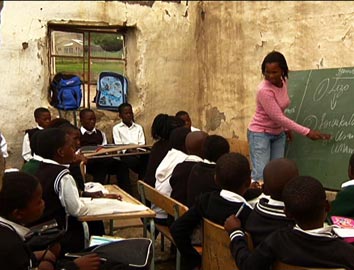
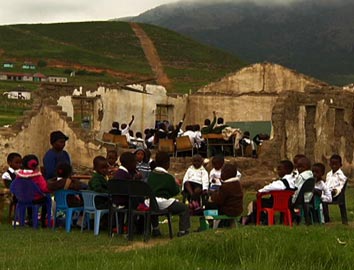
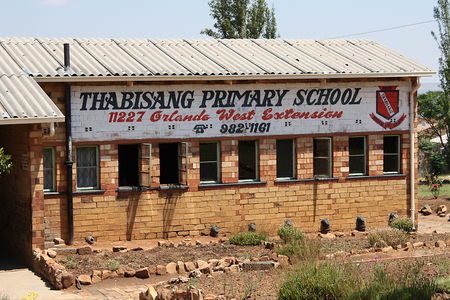
A 2011 update
Watching a magazine programme on our local TV station last night I was appalled by one image which showed dozens of school desks standing out in the open. The desks were being warped and cracked by the elements to which they had obviously been exposed for some time.
Now to me that is utterly and totally criminal. It reinforces my scepticism about President Zuma's ability and willingness to effect real change in such a critical area as education.
Those desks sitting out in the open represent a criminal waste of resources for which someone should be held accountable. The fact that the children in that school are still sitting out in the open for their lessons is totally unacceptable.
We are squandering our future by not managing this kind of thing properly. The Minister of Basic Education, Ms Angie Motshekga, is,. in my view, not competent to hold that position and has failed the country dismally. She has been running the department for two years now and there is still little progress in this vital aspect of government.
The children of South Africa are being shockingly let down, and we are sowing dragon's teeth which are going to come back to haunt us.
Education Department Split after elections
After the National General Elections of 22 April 2009 I wrote the following on my local blog under the heading "A cabinet full of mediocrity":
Watching the announcement of the new Cabinet by President Zuma on Sunday some thoughts that came to me were - a few stars of hope breaking the sea of mediocrity, more and more people who will do less and less, sinecures, the paying off of political debts taking precedence over the needs of the country.
Of particular concern to me as an educator is the the splitting of the education department as per the ANC's Polokwane resolution.
Education is so vital, so crucial to the future of this country that it needs special attention and focus, special vision and total commitment to delivery.
So the decision to split the department is already worrying, as what is needed is a holistic approach which would achieve an almost seamless progression from kindergarten through to various forms of higher education and training. The fact that the Department of Labour has a hand in some aspects of higher education, namely vocational education and training, is already problematic. To now split higher education from basic education looks like adding to the problems of coordination and implementation.
Of course the appointments of Ministers is also not propitious or engendering of confidence that the problems will be addressed with any sort of commitment or coordination.
As Minister of Higher Education and Training we have Blade Nzimande who is more at home in the pursuit of vague ideological musings than in getting down to business and running a department.
And Basic Education is left to the dubious mercies of Angie Motshekga, last seen dancing in the streets when she was supposed to be at a meeting with the National Minister of Education.
Leaving this critical activity in such hands is an affront to the future of the country and is a blatant reward for political support.
The appointment of Trevor Manuel to the National Planning Commission is one source of hope in that he is known as a no-nonsense manager who hopefully will use the clout of his position to ensure that these Ministers are productive.
Education is so central to the future of the country that it cannot be left in the hands of ideologues and dancing aunties. It needs focussed and clear attention to the needs of learners and educators, and the development of a culture of accountability on the part of all stakeholders. Learners need to be held accountable for what they learn, educators need to be held accountable for doing what is needed to facilitate the learning of learners.
We already have a great curriculum, but no-one is taking seriously the supporting structures and culture that are needed to make the curriculum work to its full potential.
Much is spoken about creating a culture of learning, but I don't see too much being done to actually create such a culture - dancing in the streets is certainly not going to do it.
There are also other issues in education that need urgent attention, like the articulation between school-based learning and vocational and academic learning. And it is in those areas of articulation that there will be even less attention paid now that we have three departments responsible. Or at least the articulation issues are made even more difficult to resolve.
A further area of concern in the new Cabinet is the creation of Ministries of Police and State Security. These sound too much like apartheid-era structures and raise the fear in my mind of more authoritarian state structures aimed at keeping the State safe rather than enhancing the safety and security of the citizens.
The appointment of some very capable people is one good sign - Pravin Gordhan, Tokyo Sexwale and Rob Davies are bound to make positive contributions to Cabinet and the country as a whole. A question that is worrying though is why someone with as much experience and ability as Jeremy Cronin is given only a deputy Ministerial appointment? Surely he could have been given more responsibility?
Another good sign is the creation of the Ministry of Human Settlements with Sexwale in charge, which, in Zuma's words, was created to bring about a more holistic approach to this important area, which begs the question why holism is important here but not in education?
Another potentially good sign is the move of Mrs Nkosazana Dlamini-Zuma to Home Affairs, a Department also in desperate need of some critical care. Maybe she will be able to use her medical skills to revive this dying patient!
Overall my impression of Zuma's announcement of his cabinet was that is was BORING! Where was the statement of vision, the fire of enthusiasm, the call to action to get this country on the move?
Zuma seems to be a pleasant enough person, but I didn't see any evidence of the kind of charisma one would expect from one who inspires aunties to dance in the streets. And maybe the lack of charisma is one sign of hope - I am not too much in favour of charisma as its effects are usually transient, but I would have expected something uplifting, something to inspire one to put in some effort to contribute, some statement of a vision for the country. But I guess Zuma has achieved his and so now it will be up to the rest of us to keep on looking for a vision for ourselves. We certainly wont get one from this president
Outcomes Based Education is a sound, practical and beneficial approach to learning
Copyright Notice
The text and all images on this page, unless otherwise indicated, are by Tony McGregor who hereby asserts his copyright on the material. Should you wish to use any of the text or images feel free to do so with proper attribution and, if possible, a link back to this page. Thank you.
© Tony McGregor 2009


